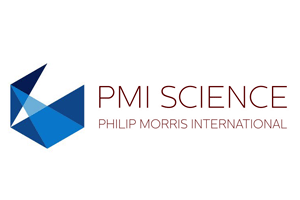Philip Morris International (PMI) has created an open online platform for sharing data, software and scientific protocols.
Called Intervals, the platform has been built to address what PMI describes as a scientific reproducibility crisis, and gather in a single place scientific data relating to modified risk tobacco products, also known as reduced-risk products.
Open to scientists from both academia and industry, and designed to enable third-party collaboration and analysis, Intervals follows the “FAIR” guiding principles for data sharing, i.e., data should be findable, accessible, interoperable and reusable.
Scientists are encouraged to add their own independent research to Intervals, thereby contributing to transparency in the field and increasing the visibility of their work.
“Across the life-sciences we see consistently low rates of the reproducibility of scientific research,” said Stéphanie Boué, scientific data transparency, PMI.
“Sharing data in a way that enables reanalysis and reuse is not yet done in a systematic manner, despite the fact that doing so would clearly benefit the scientific community and society in general.
“This is particularly true where the quality of science may be questioned due to the affiliations of researchers, funding sources or research topics. Tobacco harm reduction is one such area, and Intervals is a crucial resource to ensure full transparency and reproducibility of the scientific research being conducted in the field.”
Intervals includes full, standardized and extensively annotated datasets from a number of clinical and pre-clinical studies that PMI has conducted as part of the assessment of its MRTPs. These range from large in vivo inhalation studies, to novel in vitro studies using three-dimensional human tissue cultures, to clinical studies investigating the pharmacokinetics of different nicotine delivery systems.
The platform provides detailed information on study protocols and interoperable data files that allow independent reanalysis of key findings, meta-analyses and efficient data reuse. Alongside raw data, rich metadata are also provided to describe experiments, data production, data processing and additional relevant information. Each study, protocol, and dataset are assigned a unique DOI, making them easily findable and citable.
Many of the PMI-conducted studies that are included on Intervals have been reviewed through a novel and comprehensive panel review process organized independently by SciPinion of Bozeman, Montana, USA.
This has been done in addition to the traditional peer-review of study publications. Seven panels of five to 12 anonymous experts scrutinized publications and raw data, resulting in consistent support of the robustness of methods and results, and the validity of conclusions. Intervals facilitates such detailed reviews, allowing any interested party to independently evaluate data, methodologies and conclusions. In doing so, the platform is able to contribute to the review processes of regulatory bodies such as the U.S. Food and Drug Administration, while also allowing the reuse of data in the generation and testing of new hypotheses.
Scientists who wish to add their own research and data to Intervals can do so with no word or figure limit. Storage space is virtually unlimited, and they will be assigned DOIs as appropriate for the individual aspects of their contributions.
By sharing their research in the standardized Intervals format, scientist have the opportunity to make their data part of future meta-analyses and contribute to a new vision and strategy for transparency and reproducibility. Intervals also includes direct links to a number of powerful computational tools and resources, which are free for contributors to use for their own research purposes.
“Intervals is set to become an international hub for scientists with a common interest in tobacco harm reduction,” said Manuel C. Peitsch, chief science officer, PMI. “This includes scientists from industry, academia, not-for-profit research organizations and regulatory bodies. In working collectively, and with a commitment to transparency and reusability, the community can establish standards in data sharing and management which will lead to the optimization of research funds and the leveraging of research findings to enable effective evidence-based decision making.”
According to PMI, the need for innovative and concerted efforts to improve reproducibility is being increasingly acknowledged across the scientific community. The U.S. National Academies of Science, Engineering, and Medicine has recently published a report—Reproducibility and Replicability in Science—calling on researchers to “convey clear, specific, and complete information about any computational methods and data products that support their published results.” The Intervals concept can be applied in many other areas of societal concern. According to PMI, any field that deals with large and complex data could benefit from this approach as the issues concerning transparency, data reusability and reproducibility are general across the sciences.











